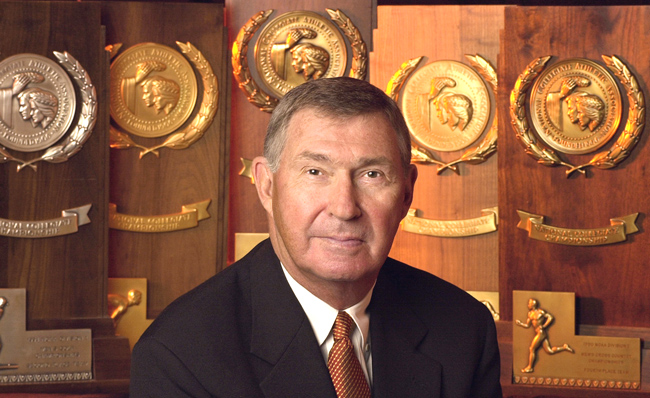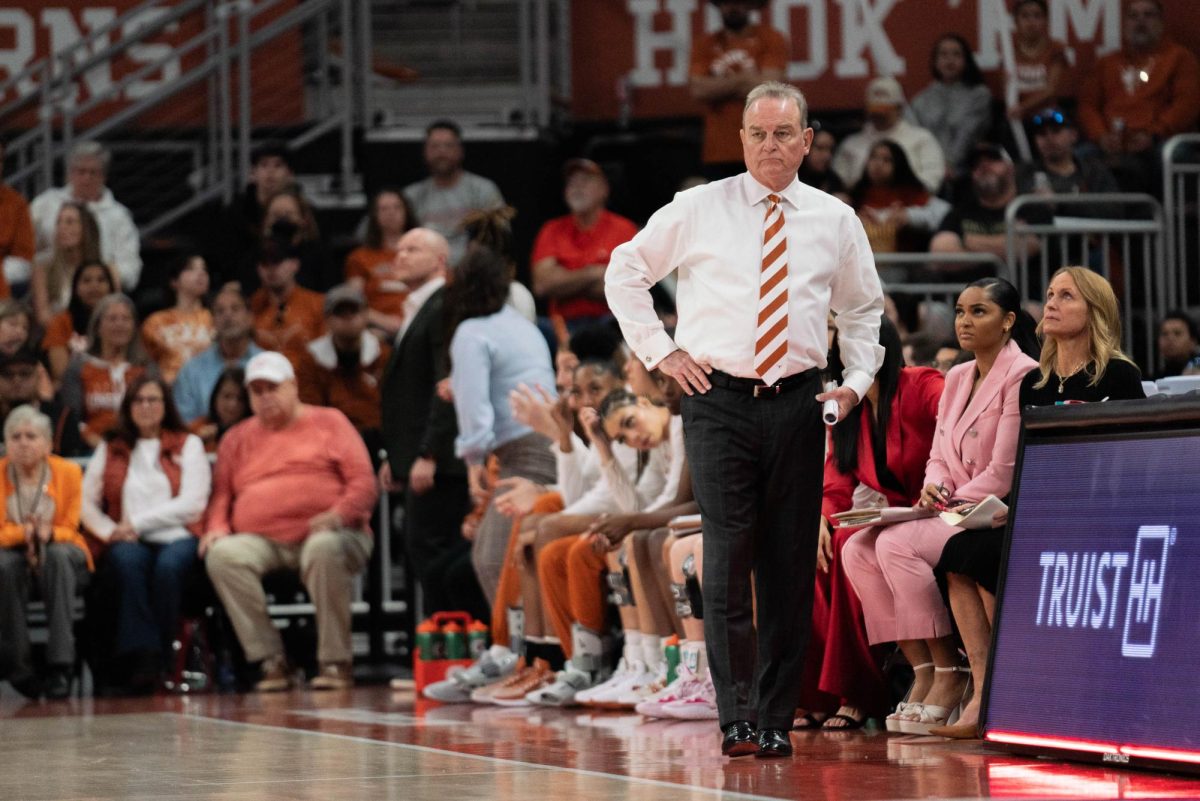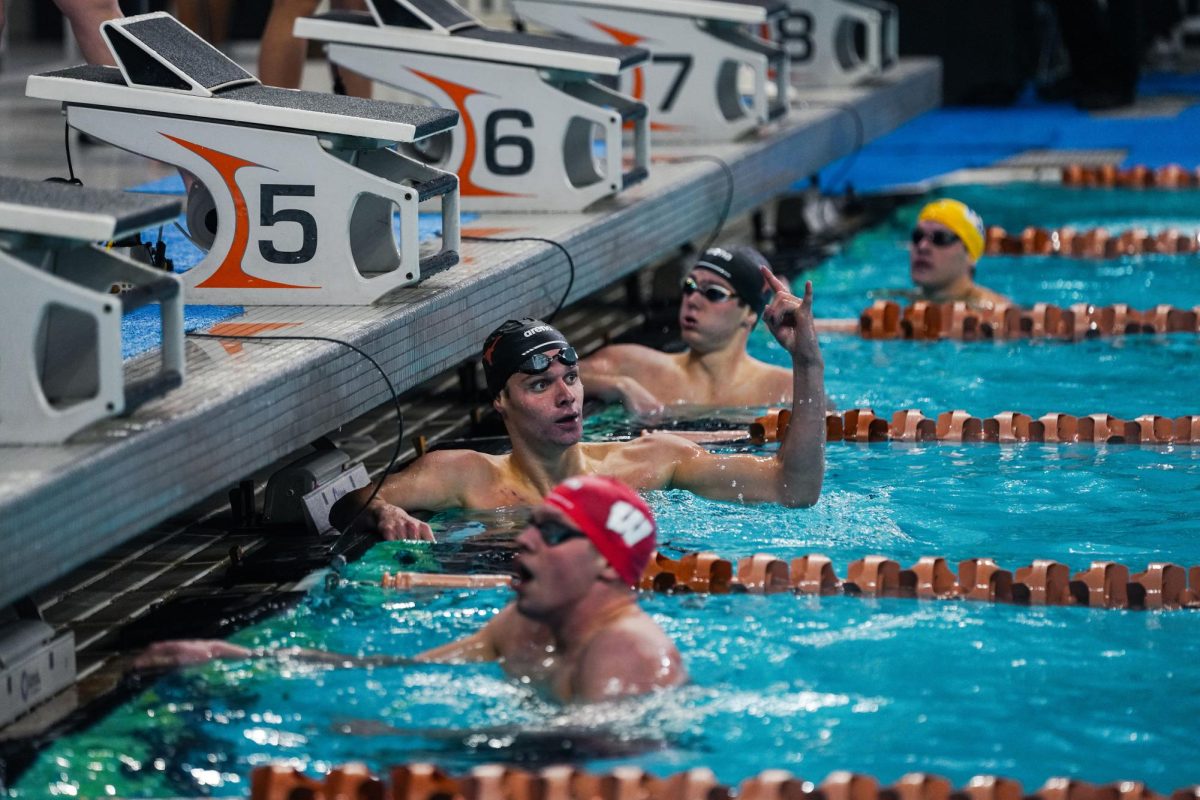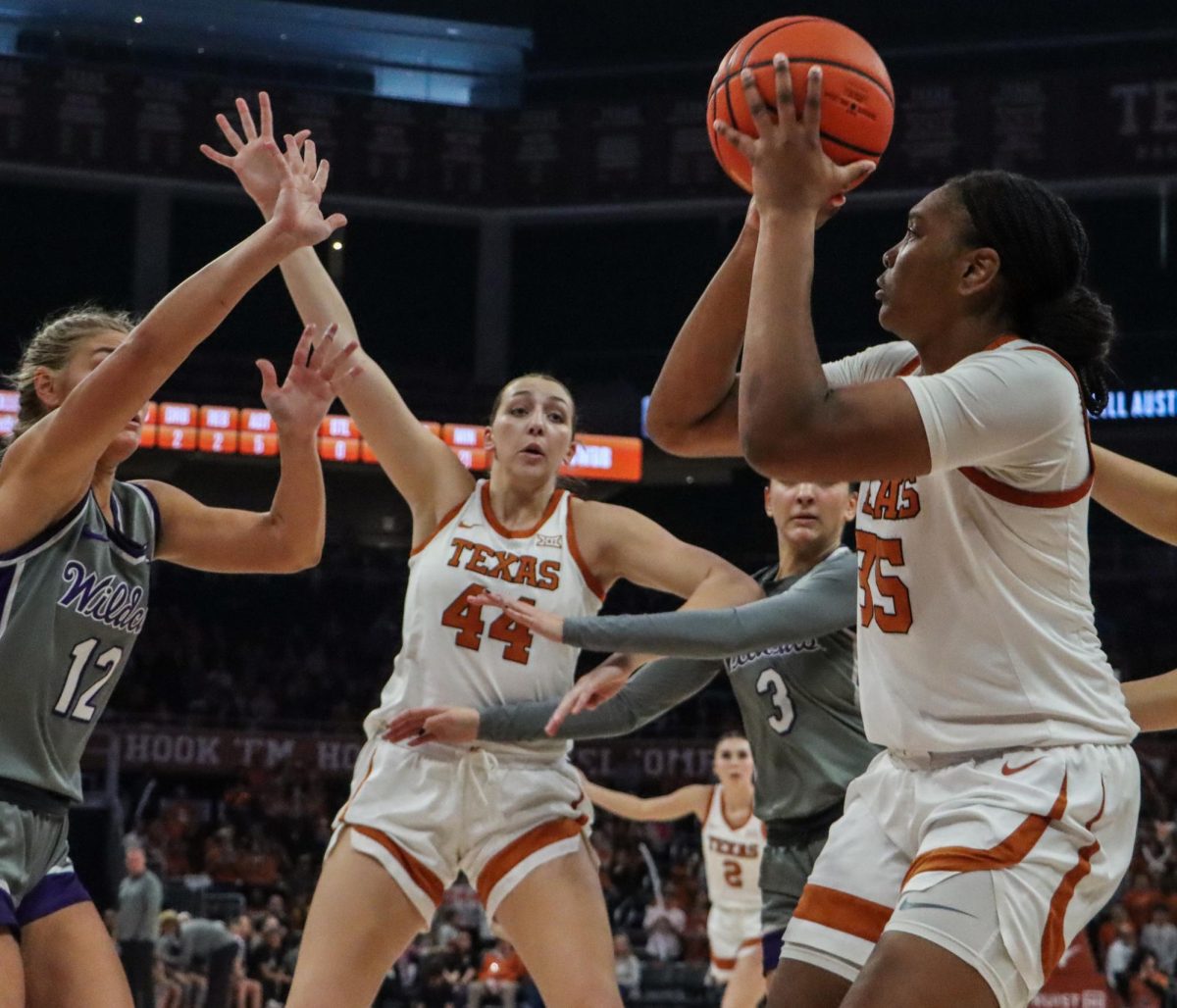Editor’s Note: This article about DeLoss Dodds orginally ran in the Aug. 22, 1981 issue of The Daily Texan.
The naming of Kansas State’s DeLoss Dodds as the University’s men’s athletic director ended months of speculation as to who would replace Bill Ellington, who had told the UT Athletics Council in May that he planned to retire.
Dodds’ appointment Aug. 14 was a surprise to many because the University named someone from outside the “Longhorn family.”
After Ellington announced a Sept. 1 retirement date, the majority of speculation centered around assistant athletic director T. Jones, who was considered next in line for the job.
But as the summer progressed, no word had emerged from the Athletics Council concerning Ellington’s replacement.
In the end, the council narrowed the field to three candidates: Dodds, Jones and Phil George, the athletic director at Angelo State and a former University basketball player.
With all the politics surrounding the University and some of its past athletic appointments, such as Fred Akers’ appointment as head football coach in 1977, it is little wonder that suspicions were aroused after the surprise announcement of Dodds.
The disappearance of giants such as former Gov. Allan Shivers, former UT Regent Frank Erwin and former University head football coach Darrell Royal from the spotlight apparently left the decision up to the Athletics Council committee appointed by President Flawn.
“There was no outside pressure,” council chairman Tom Morgan said. “Of course, we received a lot of letters of recommendation, but that’s normal for an important position like this. I don’t hesitate to say that there was zero outside interference,” he said.
When long-time Royal assistant Mike Campbell was passed over in favor of Akers for the head coaching position in 1977, some insiders said the council was influenced by Erwin to name an outsider. With Dodds’ appointment, speculation grew that the council was influenced to pick him.
“There’s no relationship at all,” Morgan said. “It’s just that what people expected didn’t happen, so it looks like controversy.”
Many people said when Jones was selected by Ellington to be his assistant in 1980, it would be just a matter of time until he was promoted to athletic director.
But last Friday, Jones denied speculation that he had been promised the job.
“I had no agreement with Coach Ellington,” Jones said. “The only thing he did tell me when I was hired was that when he retired I would be considered as a candidate, and that’s all I can ask for.”
Despite reports that Jones was not a top contender for the opening, Morgan and other council members insisted he was.
“I don’t know where they got that T. didn’t have any support,” said council member Wally Scott Jr. “But that’s just not true. T. was considered right until the last, and I certainly hope he stays with the University because he is an excellent man to have.”
While Morgan thought it was foolish to think anyone could be promised such an important job, he also said, “It is foolish to say that as the person second in line, Jones was not a candidate for the job.”
Morgan said Jones was considered a prime candidate but that Dodds’ superior athletic background gave him the edge.
Morgan added that the council felt no internal pressure to select someone from within the University.
“We did some research,” Morgan said, “and we found no precedent to support that line of thinking. For example, only one football coach got his degree at UT, and only one AD got his from UT. In fact, two of the most successful athletic directors Texas ever had — Dana Bible and Darrell Royal — came from outside the conference. It’s natural to think we should hire someone here, but the evidence doesn’t support it.”
With all the speculation of the behind-the-scenes activities involved in the selection of the University’s men’s athletic director, the most overlooked fact may be Dodds’ qualifications.
Dodds, who received recommendations from many highly respected football authorities — including Dallas Cowboys personnel director Gil Brandt, Southwest Conference commissioner Cliff Speegle, Big Eight commissioner Carl James and CFA executive director Charles Neinas — has made a national reputation for himself with his work at Kansas State.















